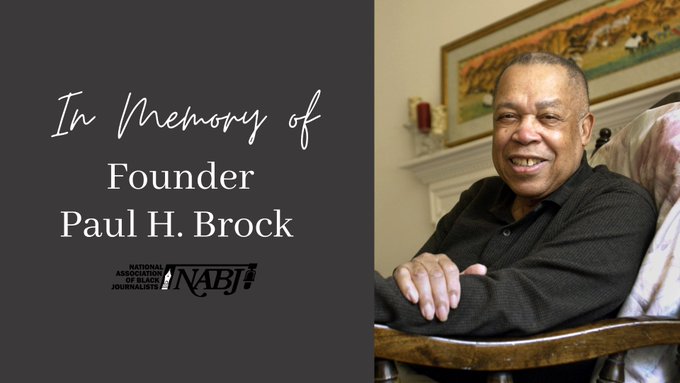Organizing Skills Were Crucial to the Early Years
Peruvian Heritage Helped Mold This Editor’s Views
Harry and Meghan Invest in Journalism Diversity
L.A. Television Reporter Killed in Hit and Run
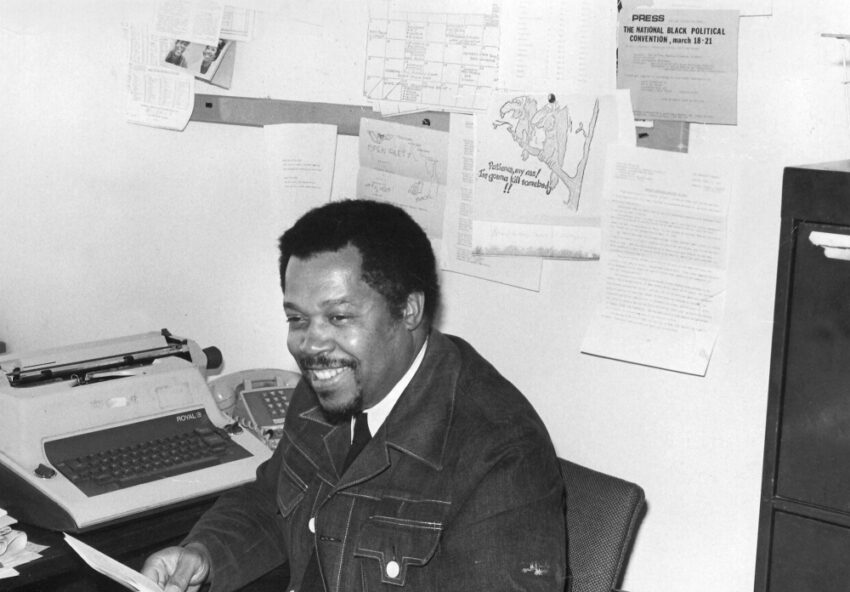
Organizing Skills Were Crucial to the Early Years
Paul H. Brock, a key figure in the founding of the National Association of Black Journalists, the oldest and largest organization of American journalists of color, died at 89, NABJ announced on Sunday.
Brock died overnight in his sleep in his suburban Maryland home of complications from diabetes, his wife, Virgenia, and daughter, Shelley Rodgers, told Journal-isms by telephone.
They said Brock’s body was donated to science via the Maryland State Anatomy Board and that he has become an organ donor. He used a wheelchair; circulation problems had led to his right leg being amputated below the knee.
In his 1993 book “Black Journalists: The NABJ Story,” Wayne Dawkins explained that about 10 journalists covering a conference of Black elected officials in Washington met in Brock’s hotel room. It was 1975. Brock had already helped found the Washington Association of Black Journalists earlier in the year.
“Paul Brock was a former journalist. He was a reporter with a CBS affiliate ratio and TV station in the Virgin Islands from 1963-65,” Dawkins wrote.
“From 1970-73, he was news director of WHUR-Radio in Washington, D.C. The station broke ground as the first black-oriented station to offer an hour-long news broadcast. Brock had also been a vice president with Mutual Black Network, which later became Sheridan Broadcasting, a black-oriented news and information company.
“In 1975, he left to become deputy director of communications for the Democratic National Committee [DNC].
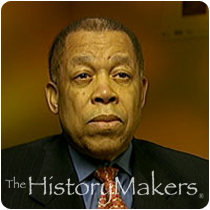 “Brock (pictured) remained sympathetic, however, to the idea of organizing black journalists nationally.
“Brock (pictured) remained sympathetic, however, to the idea of organizing black journalists nationally.
” ‘There were several organizations that concerned themselves with employment and with blacks in the news media in 1973, ’74 and ’75,’ explained Brock. ‘A few of us felt the need for a national organization. DeWayne Wickham had a group in Baltimore. Chuck Stone was involved with a group in Philadelphia. Tony Cox was involved with a group in Los Angeles. Boston had a group.
“Eddie Williams (president of the Joint Center for Political Studies) called a number of black elected officials together for a conference.
” ‘Since we had been talking to a number of people, maybe this would be a great opportunity to cover this and come early, then have an organization meeting.
” ‘I sent letters to 125 to 150 black journalists, which may have been everybody. I left journalism and went to the DNC. As I went to all the cities and gathered all the names of journalists, I had a personal goal to make sure all black journalists had access.
” ‘I would get their names and ask them who were the other black journalists in their city.’ ”
Brock spent much of his career in public relations, working for the DNC and the NAACP, among others. In 2013, he was honored by the National Black Public Relations Society.
As NABJ explained then, “Brock served as executive director of NABJ for almost a decade before leaving to become the campaign communications manager for Jesse Jackson’s presidential campaign at the 1984 Democratic National Convention in San Francisco. Today, Brock continues to assist NABJ as a consultant.”
Brock was not always accepted as an NABJ founder. “Brock was out of journalism and working for the DNC when NABJ was founded so he was not accepted as a member,” Dawkins told Journal-isms by email. “However, founders know that Brock was a key figure in getting them to D.C. in December 1975 to organize.”
Paul Delaney, another NABJ co-founder, messaged Journal-isms, “we founders realized we were dumb clucks re administering a big orgn & paul’s background & experience provided what we badly needed. he & i were pals forever, but we had one major disagreement — i opposed his being deemed a founder of nabj — granted later — when he was not a journalist, but a flak. but he & i laughed off that difference & remained pals for life. his contributions to the group were immeasurable.”
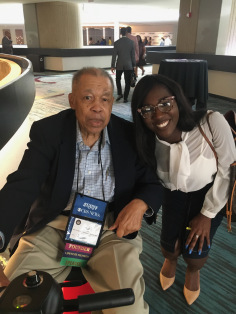
Despite his medical issues, Brock remained as active as he could. In 2018, Kyra E. Azore, then a Howard University undergraduate serving as student representative on the NABJ board, described on her blog what it was like to meet Brock at that year’s convention in Detroit.
He “reminds me so much of my grandfather. He is such a kind and wise soul. I find myself hanging on every word when he speaks. Recently, he experienced some health challenges and I wasn’t sure if he would be able to travel to Detroit. But, I was so so excited to see him when I finally saw him. He was in great spirits and even spoke on a panel. He even asked me to see my ‘marks’ from the last semester to make sure I’m doing well. (I don’t know when they were last called marks) but I definitely will be printing out my grades to show him.”
Family members said they were planning a memorial service. In addition to his wife, Brock leaves four children, four grandchildren and 10 great-grandchildren.
- TheHistoryMakers: Paul Brock (2003)
- Katharine Q. Seelye, New York Times: Paul Brock, 89, Dies; Helped Found Black Journalists Group (March 22)
- Aprill O. Turner, The Undefeated: From founder to friend: How Paul Brock connected generations through the National Association of Black Journalists (March 16)
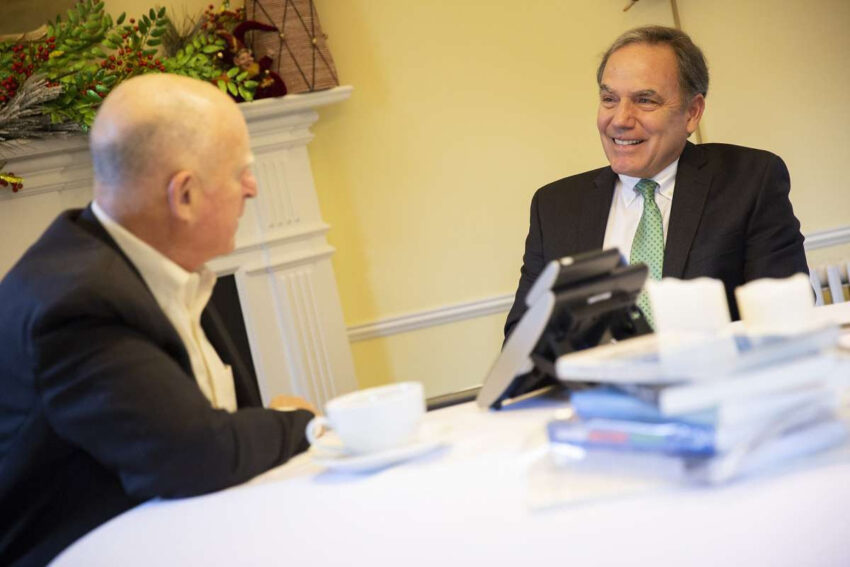
Peruvian Heritage Helped Mold This Editor’s Views
Diaz did not mention it, but he is one of less than a handful of Latino editorial page editors in the mainstream press. There were but five when the former Association of Opinion Journalists, now part of the News Leaders Association, took a head count in 2013. Diaz was asked then what he thought about those numbers.
“I worry about the decline in diversity in newspapers generally, and on opinion pages specifically,” Diaz responded.
“Our coverage and approach to issues is inherently broadened and enriched by our life experiences. My grandparents immigrated from Peru in the late 1920s, and their history, struggles and perseverance had a profound influence on me, even as I grew up in the relative comfort of the Bay Area suburbs.
“I know these sensibilities shaped everything from my work ethic to my appreciation of cultural differences. It unquestionably plays into my view of everything from federal immigration reform to recently signed state legislation on domestic workers’ rights. (My single-parent grandmother worked for years as a domestic).
“Today, I remain active in the National Association of Hispanic Journalists partly out of my commitment to help nurture and inspire journalism students to bring a new generation of Latinos into the profession. Their perspective is going to be only more important with the nation’s changing demographics.”
[Diaz elaborated on Monday, “The only thing I would add would be that strides have been made in diversifying newsrooms — and The Chronicle and its parent company Hearst are really intensifying and tracking efforts to do so — but we’re not there yet.”]
Announcing his intention in December to take the buyout, Diaz outlined on LinkedIn what the newspaper wants in his successor: We “are not looking for someone who merely wants to continue with established practices.
“Instead, we want an innovative leader willing to answer a key question: What is the role of an editorial page in 2021? At a time when the news industry is reconsidering everything from whether we should still do political endorsements during elections to whether there is a difference between Opinion writing in the newsroom and Opinion writing on the editorial staff, the Chronicle wants to rethink the section from the ground up.”
- John Diaz, San Francisco Chronicle: What journalists can learn from Oprah about interviewing

Harry and Meghan Invest in Journalism Diversity
“Prince Harry and Meghan Markle’s nonprofit, Archewell, was one of the first donors to invest in Press Pad Charitable Foundation,” Bianca Betancourt reported Friday for Harper’s Bazaar.
“The new arm of the Press Pad platform, which was founded just last month, aims to ‘improve socio-economic diversity within the media by lowering the financial barrier for young people who want to become journalists,’ according to its official website.
“Through its new donation program, Press Pad Charitable Foundation, will provide bursaries, grants, training, and support for young people from diverse backgrounds who want to enter the media industry, and who normally would not have the opportunities to do so. Before the foundation was formed last month, Press Pad began as a platform providing free advice to burgeoning journalists. . . .”
Separately, “French magazine Charlie Hebdo is facing widespread criticism for its most recent front cover, which shows a cartoon of the Queen kneeling on Meghan Markle’s neck in what appears to be a recreation of George Floyd’s death, Sam Hancock reported Sunday for Britain’s The Independent.
“Alongside the caricature, a headline reads, ‘Why Meghan left Buckingham,’ with the Duchess of Sussex replying – from underneath the Queen’s knee – ‘because I couldn’t breathe anymore.’ “
Hancock also wrote, “The Charlie Hebdo cover has been condemned as ‘abhorrent’ and ‘worrying’ on social media, with some Twitter users claiming the magazine’s satire has become ‘plain racist’.”
- Brooke Minters, Politico: Chicago’s Kim Foxx was ‘triggered’ by #meghanharryoprah
- Vic Motune, The Voice, Britain: Society of Editors to hold Board meeting today: Statement from The Voice News Editor
- Jacob Stolworthy, The Independent, Britain: Piers Morgan ‘at centre of £10m bidding war’ following Good Morning Britain departure
- Linn Washington, thiscantbehappening.net: Racism in British News Media – The Missing Story
L.A. Television Reporter Killed in Hit and Run
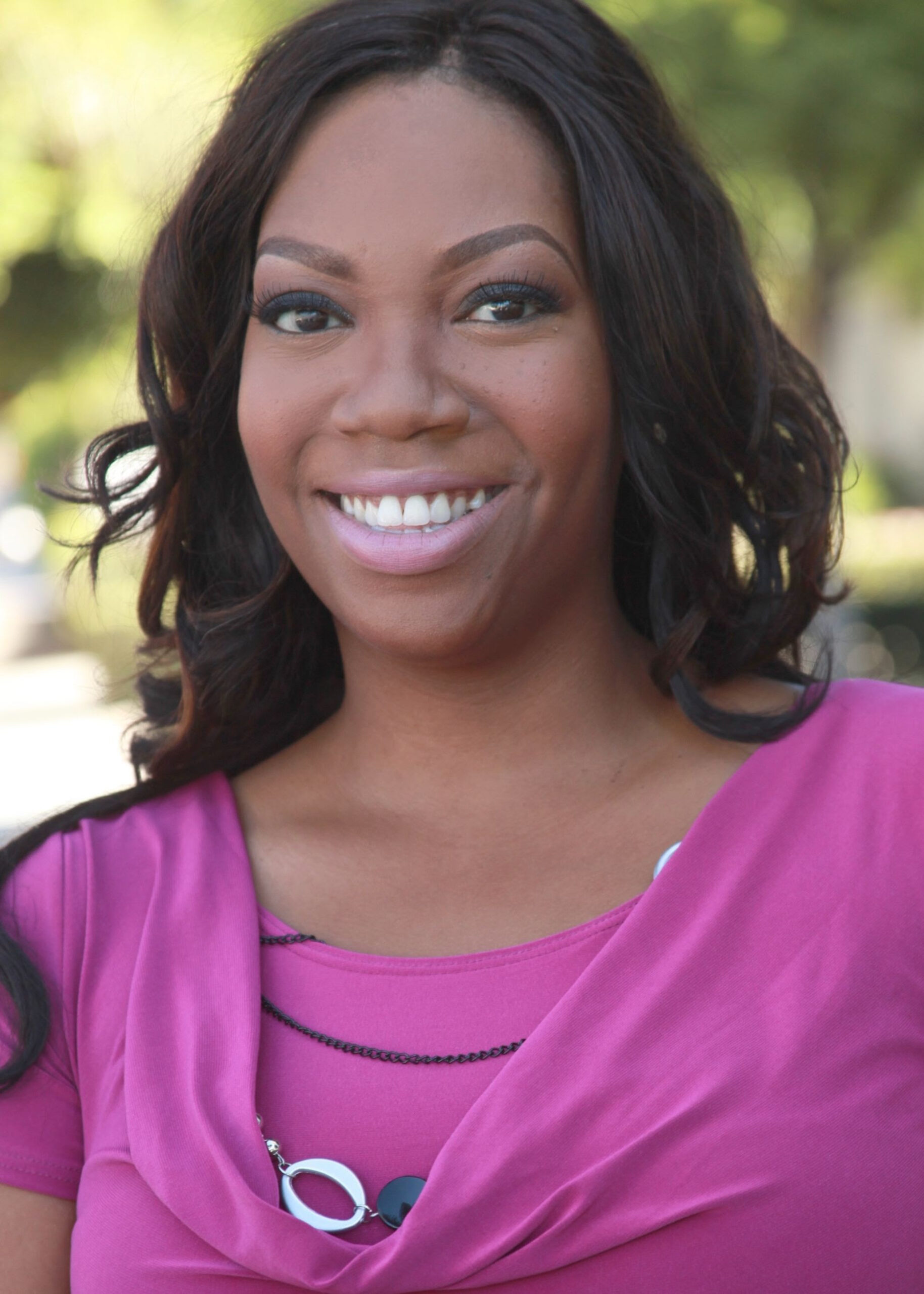 “Margo Spann (pictured), an award-winning television journalist and entrepreneur originally from Milwaukee and a graduate of the University of Wisconsin-Madison, was killed March 11 in an early morning hit-and-run in Los Angeles,” the website madison365.com reported Sunday.
“Margo Spann (pictured), an award-winning television journalist and entrepreneur originally from Milwaukee and a graduate of the University of Wisconsin-Madison, was killed March 11 in an early morning hit-and-run in Los Angeles,” the website madison365.com reported Sunday.
“According to reports, police officials indicated that Spann, 40, was walking in a crosswalk at 6:30 a.m. when she was hit by a white Chevrolet Silverado pickup truck in the vicinity of Arlington Heights, on Venice Boulevard and Wilton Place. The Los Angeles County coroners arrived at the location and pronounced Margo deceased at the scene.
“A standing reward of up to $50,000 is available from the city of Los Angeles for information that helps police solve a fatal hit-and-run.”
Spann was a board member of the Los Angeles chapter of the National Association of Black Journalists.
In “the midst of our collective grief, we call on LAPD for transparency and on our community for assistance in finding who killed Margo,” the chapter said.
“We ask that you contact LAPD West Traffic Division at 213-473-0234 or 213-473-0562. Tipsters may also contact Crime Stoppers . . . at 800-222-8477.”
Spann had written on her website, “Telling a good story is something that came naturally to me. As the youngest of eight kids I’ve always enjoyed a good story. That passion for story telling has introduced me to some interesting people… all with their own story. I enjoy telling unforgettable stories in hopes of affecting positive changes in people.
“I am an enthusiastic, skilled reporter who loves digging for creative news stories. My story telling style is a fusion of purposeful stand-ups, concise writing and solid live shots.
“After a decade of chasing ‘the big story’ everyday as a local News Reporter, I left the Badger State for sunny California. Yep, I traded in my parka for a bikini. I’m livin’ my best life and building up my skills for my ‘Second Act’ as a Corporate DJ.
“‘I’m still telling stories… sometimes with celebrities and now I’ve launched my own production company Cocoa Hollywood Media to help other storytellers. Same character… new scene with even more stories to tell so… Stay tuned!”
Double Tragedy for the Latimore Family
March 12, 2021
Killer of Atlanta Editor’s Twin Still at Large
Inmate Editor Tells of COVID Spread, Is Punished
Pitts Wins Award for Journalistic Courage
Short Takes
We sent him off really nice. See you in the sky, Brother. Love you.
Posted by Marshall Latimore on Saturday, June 15, 2019
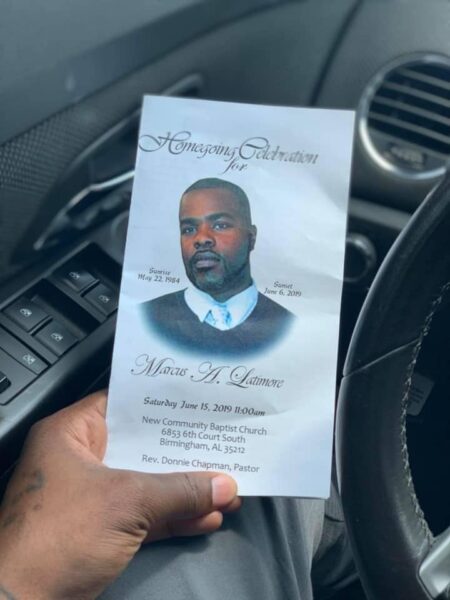
Killer of Atlanta Editor’s Twin Still at Large
The family of Marshall Latimore, the editor-in-chief of The Atlanta Voice who died Tuesday at 36, was already coping with another tragedy: Marshall’s twin, Marcus Armstead Latimore, was slain two years ago in their Birmingham, Ala., hometown. The perpetrator has never been caught, Birmingham police told Journal-isms on Friday.
“This case is still open and under investigation,” a Birmingham police spokesman messaged. “Although our detectives have made some progress, we are still encouraging the community to come forward with information and tips to help solve the case.”
On June 6, 2019, “A Jefferson County sheriff’s deputy was alerted by motorists driving in the area of Overhill Drive and Third Place that there was a dead person off the roadway, said Birmingham police Sgt. Johnny Williams,” Carol Robinson reported the next day for al.com. “Authorities said the discovery was made by someone who was recreational driving in the area.
“The deputy found the victim in the intersection and then called 911, summoning Birmingham police to the scene.”
Bill Yates, deputy county coroner for Jefferson County, told Journal-isms Friday that the case was ruled a homicide, resulting from a direct gunshot wound to the back and injury to a lung and subclavian artery, in the chest.
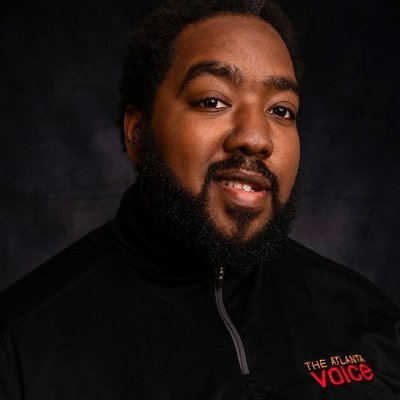 Marshall Latimore (pictured) made his grief known on Facebook.
Marshall Latimore (pictured) made his grief known on Facebook.
“The past 24 hours have been among the most difficult of my adult life,” he wrote. “Early Thursday morning, my twin brother Marcus Latimore was discovered to have been murdered and left for dead along a dirt road in our hometown of Birmingham.
“The pain of losing my brother is truly indescribable. He loved easily, treated people with kindness and never hesitated to offer others a helping hand. He was charismatic, fiercely loyal and rarely without a smile on his face. Though he faced his own personal demons, he never let that interfere with him living a carefree life. I am inspired that in his short life, he touched so many lives. He was loved.
“As my family now scrambles to pick up the pieces and sort out what has happened, I am appreciative of all the text, calls and visits that my support network has offered. I don’t really know how I am going to move past this but I am hopeful that each day will get a little easier and that, in time, the lesson that Spirit has introduced with this chapter will manifest. Thanks again for your love and support. We will get through this.”
After the funeral, the surviving twin posted a photo and the words, “We sent him off really nice. See you in the sky, Brother. Love you.”
Twins run in the Latimore family, Mary Latimore, the twins’ mother, told Journal-isms by telephone Friday. She gave birth to two other sets of twins, though one set earlier did not survive. “It was devastating, really,” she said of the deaths of Marshall and Marcus. “Marcus was the one who was here with me” in Birmingham, while Marshall would call every day between meetings to check on her, even ordering food for her from afar. Still, she said, “death comes around, but I know that life goes on.”
Marshall had suffered from congestive heart failure, his mother told al.com. She “said she was unable to reach him Tuesday night or Wednesday morning and asked for a wellness check. He was found dead at his home by Atlanta Police just after noon on Wednesday,” Greg Garrison reported Thursday for al.com.
Marshall Latimore also is survived by twin brothers Mitchell and Micheal (cq), 50, and younger brother Martin. Mary Latimore said the family is discussing having a virtual memorial service. ”They are also planning to set up a scholarship fund in Latimore’s name,” Martel Sharpe reported for the Voice.
Meanwhile, the tributes and remembrances continue.
“We’re getting accolades from around the country, from people who knew Marshall, worked with him and respected him,” Atlanta Voice President Jim Washington told Garrison. “We were lucky to have him here for four years.”
Mary Latimore said she was surprised by the breadth of the outpouring.
Sharpe added for the Voice, “If anyone would like to donate to the Latimore family or [if] anyone would like to send them anything during this time, please contact csuggs@theatlantavoice.com for instructions on how to proceed.”
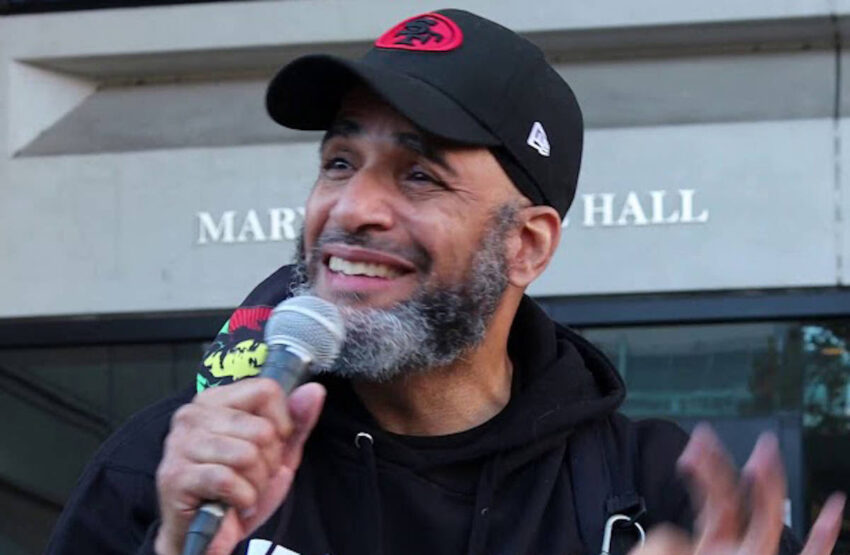
Inmate-Editor Tells of COVID Spread, Is Punished
A federal judge Thursday upheld a gag order on a newspaper editor who, serving time in a halfway house, told a journalist of a spread of COVID among prisoners.
The editor, Keith “Malik” Washington, lives at a halfway house as he edits the San Francisco Bay View, a Black newspaper that says it has a national reach. “He has a job, an apartment waiting in the city, and only about three months left until he has completed his federal sentence – but despite the outbreak, the federal Bureau of Prisons won’t let him leave,” Tim Redmond reported in January for 48hills.org.
According to Nicholas Iovino of Courthouse News Service, “Washington is serving a two-year sentence for a probation violation related to his 2010 conviction for bank robbery in Texas.
“In September, he was transferred to the Taylor Street Reentry Center in San Francisco’s Tenderloin neighborhood. The halfway house is run by GEO Group through a contract with the Federal Bureau of Prisons. As part of a work-release program, Washington was allowed [to] leave the halfway house Monday through Saturday to do his job as a newspaper editor.”
Olivia Wynkoop added Feb. 2 for the San Francisco Examiner, “He says when he told a colleague from the local news website 48 Hills about a COVID-19 outbreak in the center, the prison corporation retaliated.
“Washington says he was denied the opportunity to attend press conferences, his phone was confiscated and he was prohibited from speaking to the media without being granted special permission from officials in Washington, D.C.
“ ‘The Federal Bureau of Prisons [has] established a pattern of conduct where they mistreat, abuse and censor any prisoner who dares to challenge their oppressive policies,’ Washington said in a news release.”
Iovino wrote, “U.S. District Judge Jon Tigar denied Washington’s motion for a preliminary injunction to stop the Bureau and GEO Group from punishing him for rule violations.
“Tigar found Washington’s request for an injunction was premature because he did not complete the process of challenging the disciplinary actions through an administrative grievance. The judge also found Washington was unlikely to prevail on his First Amendment retaliation claim because the Bureau and GEO Group ‘demonstrated that they would have disciplined Washington regardless of any retaliatory motive’.”
- Journal-isms: Why Prisons Deserve More Coverage (June 7, 2020)
Leonard Pitts Jr. reflects on the future of American democracy (Miami Herald video)
Pitts Wins Award for Journalistic Courage
“In an ongoing effort to recognize individuals of our time who embody courageous journalism, Colby College today announced that it will honor Leonard Pitts Jr. with this year’s Elijah Parish Lovejoy Award,” the college announced Thursday.
“Leonard Pitts is an American commentator, journalist, and novelist. Currently writing for the Miami Herald, he is well known for his nationally syndicated column that often addresses issues of race, politics, and culture.
“Lovejoy, 1826 valedictorian at Colby, was a crusading abolitionist editor who was murdered in 1837 for his anti-slavery editorials. He was called America’s first martyr to freedom of the press by John Quincy Adams. . . .”
Pitts told his home newspaper, the Herald, “It’s an interesting thing to get an award for just doing your job. I don’t know what else I’m supposed to do. When people come at you and are threatening to intrude on your life, what else are you supposed to do? Go, ‘No, I guess I won’t write that anymore?’ I can’t do that. I almost feel it’s undeserved getting an award for doing something for which you really had no choice. If this is courage I’ve had no choice but to have courage because anything else is unworkable.”
“But then there’s that name — Lovejoy — and what that namesake award represents,” the Herald’s Howard Cohen wrote.
“ ‘Elijah was a 19th Century bad-ass in terms of publishing,’ Pitts said. ‘This guy would refuse to stop publishing anti-slavery editorials in the paper he had in Alton, Illinois.’ . . .”
In 2019, a man described by authorities as a leader of the neo-Nazi group Atomwaffen Division admitted in federal court that he harassed journalists and people of color by calling police to their homes and offices.
Pitts was one such journalist. In 2020, Investigative Reporters and Editors awarded its Don Bolles Medal to Pitts, A.C. Thompson of ProPublica and investigative journalists Chris Ingalls and Jeremy Jojola. The medal “recognizes investigative journalists who have exhibited extraordinary courage in standing up against intimidation or efforts to suppress the truth about matters of public importance.”
Short Takes
- “At Democracy Fund, we acknowledge that — through our systems, structures, and choices — we have been complicit in upholding white supremacy. We are therefore examining our external grantmaking and internal culture to ensure that we live up to the values we want to see in our democracy,” Joe Goldman and Tom Glaisyer wrote March 1 for the self-described “independent and nonpartisan, private foundation that confronts deep-rooted challenges in American democracy while defending against new threats.”
- “The National Press Awards will be postponed, the Guardian understands, after the board of the Society of Editors concluded that a series of withdrawals over its statement that there was no racism in the British media threatened its integrity,” Archie Bland reported Thursday for the Guardian.
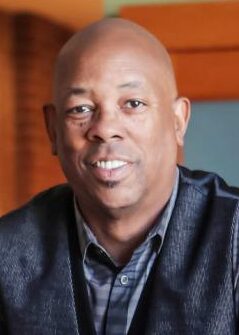 In St. Louis, “After a nationwide search, Art Holliday (pictured), has accepted the position of news director at 5 On Your Side,” Director of Content Carol Fowler announced March 4. KSDK-TV also said, “Holliday came to 5 On Your Side in 1979 and is the station’s longest-serving journalist. He most recently co-anchored the 4 p.m. newscast alongside Kay Quinn. When he was named interim news director, he said stepping behind the camera was a decision that came down to wanting to serve the greater good of the station and helping to make everyone else better. . . .”
In St. Louis, “After a nationwide search, Art Holliday (pictured), has accepted the position of news director at 5 On Your Side,” Director of Content Carol Fowler announced March 4. KSDK-TV also said, “Holliday came to 5 On Your Side in 1979 and is the station’s longest-serving journalist. He most recently co-anchored the 4 p.m. newscast alongside Kay Quinn. When he was named interim news director, he said stepping behind the camera was a decision that came down to wanting to serve the greater good of the station and helping to make everyone else better. . . .”
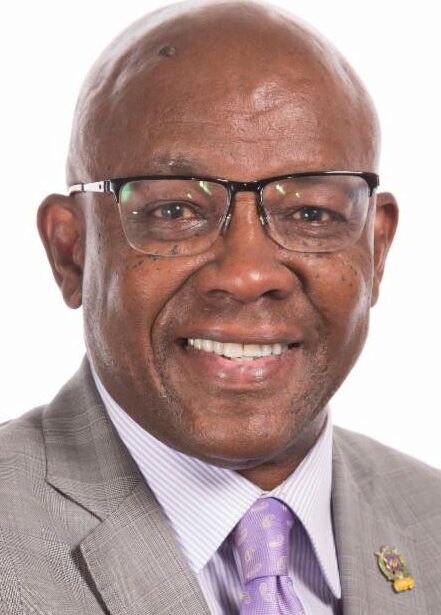 “I’m pleased to announce that APSE is establishing the Garry D. Howard (pictured) to honor our organization’s first Black president,” Lisa Wilson, president of Associated Press Sports Editors, said in a March 5 statement. “The Garry D. Howard scholarship — one of five $1,250 college scholarships that APSE will award annually — will go to a student at a historically Black college and university.”
“I’m pleased to announce that APSE is establishing the Garry D. Howard (pictured) to honor our organization’s first Black president,” Lisa Wilson, president of Associated Press Sports Editors, said in a March 5 statement. “The Garry D. Howard scholarship — one of five $1,250 college scholarships that APSE will award annually — will go to a student at a historically Black college and university.”
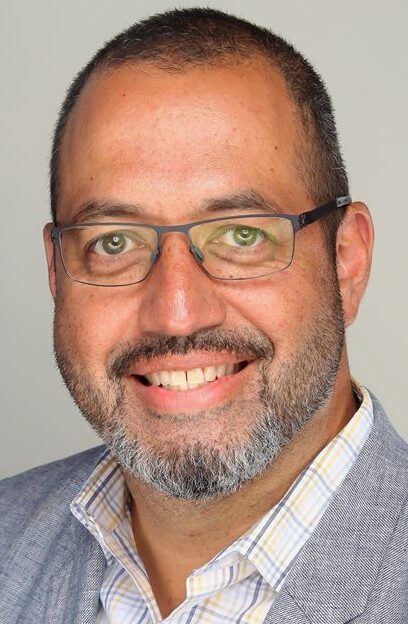 “The national board will not comment on the specifics behind Hugo Balta’s (pictured), firing from WTTW News in Chicago,” the National Association of Hispanic Journalists said Feb. 23. “However, NAHJ expects to see a consistent application and enforcement of the station’s policies. . . . For these reasons, it is essential for WTTW to fill the role with a Hispanic or Latinx journalist, who is also capable of empathetically and accurately representing Chicago’s diverse community. This would be an opportune moment for WTTW’s newsroom leadership to establish a relationship with a strong local resource, such as the NAHJ Chicago chapter, and create an effective pipeline for journalists of color. . . .”
“The national board will not comment on the specifics behind Hugo Balta’s (pictured), firing from WTTW News in Chicago,” the National Association of Hispanic Journalists said Feb. 23. “However, NAHJ expects to see a consistent application and enforcement of the station’s policies. . . . For these reasons, it is essential for WTTW to fill the role with a Hispanic or Latinx journalist, who is also capable of empathetically and accurately representing Chicago’s diverse community. This would be an opportune moment for WTTW’s newsroom leadership to establish a relationship with a strong local resource, such as the NAHJ Chicago chapter, and create an effective pipeline for journalists of color. . . .”
To subscribe at no cost, please send an email to journal-isms+subscribe@groups.io and say who you are.
Facebook users: “Like” “Richard Prince’s Journal-isms” on Facebook.
Follow Richard Prince on Twitter @princeeditor
Richard Prince’s Journal-isms originates from Washington. It began in print before most of us knew what the internet was, and it would like to be referred to as a “column.” Any views expressed in the column are those of the person or organization quoted and not those of any other entity. Send tips, comments and concerns to Richard Prince at journal-isms+owner@
View previous columns (after Feb. 13, 2016).
View previous columns (before Feb. 13, 2016)
- Diversity’s Greatest Hits, 2018 (Jan. 4, 2019)
- Book Notes: Is Taking a Knee Really All That? (Dec. 20, 2018)
- Book Notes: Challenging ’45’ and Proudly Telling the Story (Dec. 18, 2018)
- Book Notes: Get Down With the Legends! (Dec. 11, 2018)
- Journalist Richard Prince w/Joe Madison (Sirius XM, April 18, 2018) (podcast)
- Richard Prince (journalist) (Wikipedia entry)
- February 2018 Podcast: Richard “Dick” Prince on the need for newsroom diversity (Gabriel Greschler, Student Press Law Center, Feb. 26, 2018)
- Diversity’s Greatest Hits, 2017 — Where Will They Take Us in the Year Ahead?
- Book Notes: Best Sellers, Uncovered Treasures, Overlooked History (Dec. 19, 2017)
- An advocate for diversity in the media is still pressing for representation, (Courtland Milloy, Washington Post, Nov. 28, 2017)
- Morgan Global Journalism Review: Journal-isms Journeys On (Aug. 31, 2017)
- Diversity’s Greatest Hits, 2016
- Book Notes: 16 Writers Dish About ‘Chelle,’ the First Lady
- Book Notes: From Coretta to Barack, and in Search of the Godfather
- Journal-isms’ Richard Prince Wants Your Ideas (FishbowlDC, Feb. 26, 2016)
- “JOURNAL-ISMS” IS LATEST TO BEAR BRUNT OF INDUSTRY’S ECONOMIC WOES (Feb. 19, 2016)
- Richard Prince with Charlayne Hunter-Gault,“PBS NewsHour,” “What stagnant diversity means for America’s newsrooms” (Dec. 15, 2015)
- Book Notes: Journalists Follow Their Passions
- Book Notes: Journalists Who Rocked Their World
- Book Notes: Hands Up! Read This!
- Book Notes: New Cosby Bio Looks Like a Best-Seller
- Journo-diversity advocate turns attention to Ezra Klein project (Erik Wemple, Washington Post, March 5, 2014)

